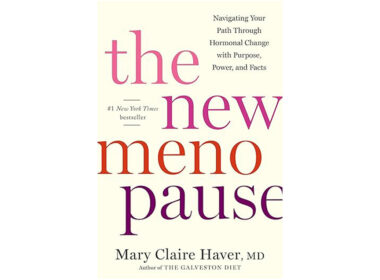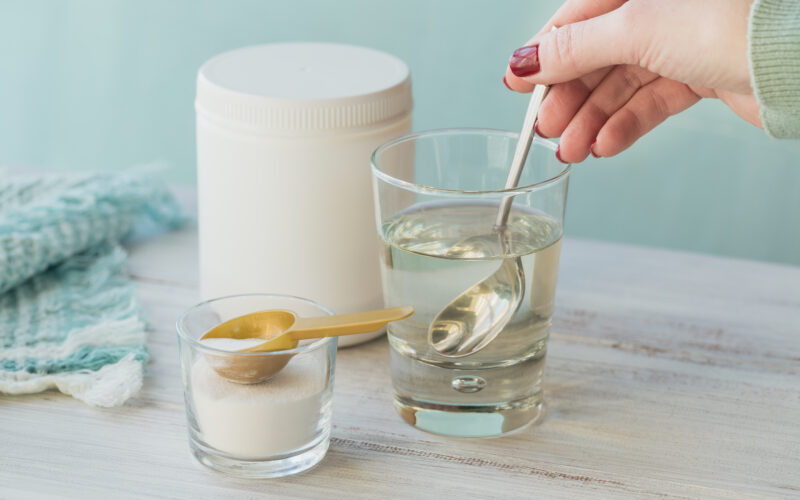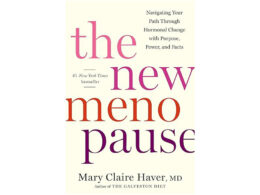На сайте часть 1 В этой серии из двух частей я рассказал о том, что такое креатин и какую пользу он приносит организму. Теперь давайте поговорим о конкретных преимуществах приема креатина для женщин.
Существует значительная разница между уровнем креатина в организме мужчин и женщин - у женщин в среднем на 70-80% меньше креатина, созданного и хранящегося в организме, чем у мужчин. Женское тело не только создать значительно меньше креатина, чем у мужчин, но, по статистике, женщины также потреблять гораздо меньше креатина в рационе, чем у мужчин [1].
Креатин не только повышает спортивные результаты
Все больше доказательств показывают, что креатин не только приносит пользу клеткам мышц, но и является источником энергии для репродуктивных тканей (включая спермаЭндометрий, плацента, матка), и может принести пользу детям внутриутробного возраста, а также людям с неврологическими расстройствами, такими как болезнь Паркинсона, Болезнь Альцгеймера, болезнь Хантингтона, а также депрессия и хроническая усталость [2][3][4]. Исследование 2024 года показало, что женщины, употребляющие богатую креатином пищу, реже сообщали о нерегулярных менструациях, инфекциях органов малого таза, а также нуждались в гистерэктомии, оофорэктомии (хирургическом удалении одного или нескольких яичников) или заместительной гормональной терапии [5].
Креатин и беременность
Интересно, что на выработку креатина в организме сильно влияют эстроген и прогестерон. Уровень креатина наиболее высок в период менструации, снижается с возрастом и при беременности. Самый низкий уровень креатина наблюдается в первые 20 недель беременности, что, вероятно, связано с истощением запасов, поскольку растущий ребенок требует от матери очень много энергии для быстрого роста в первые месяцы [1]. Исследователи надеются выяснить, как креатин используется маткой для получения энергии, чтобы изучить возможную связь между креатином и имплантацией эмбриона, а также силой сокращений матки во время родов [6].
Испытания на животных показали явную пользу от приема креатина во время беременности
Хотя исследований, изучающих действие креатина, немного (или, вообще, что угодно) на беременных женщинах, существует множество исследований креатина на беременных животных. Последовательно было показано, что добавление креатина в рацион беременных животных обеспечивает "защитный эффект против гибели плода и повреждения органов, связанных с внутриутробной гипоксией" [2]. Под внутриутробной гипоксией понимаются ситуации, когда мозг ребенка и другие жизненно важные органы не получают достаточного количества кислорода и питательных веществ до, во время или после рождения. Это может привести к мертворождению или нарушениям развития. Хотя креатин не предотвратить условия, которые могут вызвать внутриутробную гипоксию, эти исследования показывают, что он может уменьшить их влияние.
Как прием креатина беременными женщинами может помочь детям в утробе матери
Низкий уровень креатина у беременных женщин также связан с низким ростом детей, что, вероятно, вызвано огромными энергетическими потребностями плаценты, матки и ребенка. В одном из исследований за беременной женщиной на 20 неделе беременности наблюдали с Дефицит АГАТ (неспособность организма вырабатывать собственный креатин), когда ее акушер был обеспокоен низким ростом плода после заметного снижения уровня креатина в крови и моче. После ежедневного приема 3 г креатина пациентка родила здорового ребенка в 35 недель с показателем 25 баллов.th перцентиль по весу при рождении и достигли типичных этапов развития к одному году [7].
Возможное применение креатина для женщин после родов
Креатин может быть полезен не только беременным, но и послеродовым женщинам, в частности, снижая вероятность послеродовой депрессии и смягчая последствия депривации сна. Прежде чем изучить эти потенциальные преимущества, следует предостеречь кормящих мам. В то время как грудное молоко естественным образом содержит примерно 9% от суточной потребности ребенка в креатине, уровень креатина в молоке матерей, которые сами принимают креатин. не измерено [8]. Кормящей маме, которая хочет начать прием креатина, следует сначала проконсультироваться с медицинским работником.
Уменьшение симптомов депрессии
Женщины в два раза чаще страдают от депрессии, чем мужчины, причем этот показатель возрастает в период полового созревания (особенно в лютеиновую фазу цикла), после родов и во время менопаузы [9]. Креатин еще не изучался в связи с послеродовой депрессией (ППР), но есть основания полагать, что он может помочь женщинам, страдающим от ППР (или предотвратить ее). Некоторые исследования указывают на связь между тяжестью депрессии и уровнем креатина в мозге, предполагая, что эти люди неэффективно хранят или расходуют креатин для получения энергии, необходимой для правильной работы мозга и баланса настроения [1]. Более того, было установлено, что у женщин в целом уровень креатина в лобных долях - части мозга, контролирующей настроение, эмоции, познание и память, - ниже, чем у их коллег-мужчин [1].
Исследование показало, что в сочетании с назначенными антидепрессантами 8 недель приема креатина привели к 56% снижение в среднем балле по Детской шкале оценки депрессии (Children's Depression Rating Scale-Revised) у женщин-подростков. Аналогичные результаты были получены и у здоровых взрослых женщин, проходивших тест по шкале оценки депрессии Гамильтона, у которых улучшения наблюдались уже через две недели приема 5 г креатина в день [1]. Даже у людей, чей организм невосприимчив к антидепрессивным препаратам, прием креатина в количестве 10 г в день привел к снижению депрессивных симптомов [2].
Смягчение последствий депривации сна
Хотя некоторые послеродовые мамы страдают от ППД, все испытывают недостаток сна. Было доказано, что добавка креатина повышает уровень бдительности, снижает риски, связанные с сонливостью, повышает уровень познания и улучшает качество сна - все это особенно важно для молодых мам!
Повышенная активность мозга, направленная на преодоление стресса, связанного с рождением ребенка, наряду с сокращением продолжительности восстановительного сна требует от мозга больших запасов энергии для продолжения нормального функционирования [1]. На одном из сайтов небольшое исследование В течение 24 часов испытуемые не спали, после чего им давали одну большую разовую дозу креатина (в количестве, не указанном в пресс-релизе исследования). Результаты показали, что уже через три часа мозг начал перерабатывать энергию, полученную из креатина, настолько эффективно, что когнитивные тесты, проведенные с испытуемыми, показали заметное улучшение по сравнению с результатами, полученными до приема креатина. Пик когнитивных способностей был достигнут через четыре часа после приема креатина, но улучшения наблюдались до девяти часов.
Креатин для женщин в постменопаузе
Женщинам в постменопаузе также полезно принимать креатин. С возрастом женщин часто беспокоит остеопороз - заболевание, при котором кости становятся более хрупкими и склонными к разрушению из-за снижения уровня эстрогена в период менопаузы [1]. Другой менее обсуждаемой проблемой пожилых людей является саркопения - прогрессирующая потеря мышечной массы и силы, начинающаяся примерно в 40 лет. В совокупности снижение мышечной массы и прочности костей резко повышает риск падений, которые могут привести к травмам, инвалидности или смерти.
У взрослых людей, ведущих сидячий образ жизни, после 40 лет можно ожидать снижения мышечной массы примерно на 8% в год. Хотя добавки креатина в одиночку мало способствует повышению плотности костей и мышечной массы, креатин в сочетании с физическими нагрузками - особенно тренировка сопротивлениятак как это дает наибольшую нагрузку на обе кости. и Мышцы - показал положительный эффект для женщин в постменопаузе.
Что показывают исследования, проведенные среди женщин в постменопаузе
В одном из исследований сравнивалось влияние тренировок на плотность костной ткани у двух групп женщин в постменопаузе: одна группа принимала креатин, а другая - нет. Группа, принимавшая креатин в дозе 0,1 г/кг массы тела в день в течение одного года во время тренировок с сопротивлением всего тела, наблюдала уменьшение потери плотности костной ткани по сравнению с контрольной группой, выполнявшей те же упражнения [2].
В другом исследовании, проведенном среди женщин, занимающихся силовыми тренировками, сравнивались группа, не принимавшая добавки, и группа, принимавшая добавки, для измерения влияния на мышечную массу. Хотя обе группы занимались силовыми тренировками, в группе женщин в постменопаузе, принимавших 5 г креатина в день в течение 12 недель, наблюдалось значительное увеличение мышечной массы по сравнению с контрольной группой, не принимавшей добавки [2].
Сколько креатина следует принимать женщинам?
Согласно Гарвардское здоровьеМоногидрат креатина - это та форма, которая была изучена и доказала свою эффективность. Они рекомендуют 3-5 граммов в день для широкой публики. Эндрю Губерманнейробиолог, упомянутый в первой части, заметки что для людей весом менее 180 фунтов целесообразно принимать 5 граммов креатина в день. Помните, как уже говорилось выше, что у женщин его уровень, как правило, гораздо ниже, чем у мужчин. Ни Гарвардский университет здоровья, ни статья Губермана не различают рекомендуемые количества для мужчин и женщин. Также не забывайте, что влияние креатиновых добавок на концентрацию креатина в грудном молоке не изучалось. Учитывая вышесказанное, если вы хотите попробовать принимать креатин, проконсультируйтесь с вашим лечащим врачом по поводу дозировки.
Если вы принимаете креатин, обязательно пейте достаточное количество воды.
Поскольку креатин частично работает за счет всасывания воды в клетки для их гидратации, особенно важно избегать обезвоживания во время приема добавки. Старый проверенный совет - добиваться бледно-желтого или соломенного цвета мочи - применим и здесь. Если ваша моча темно-желтого или даже янтарного цвета, пора увеличить потребление воды.
Также имейте в виду, что добавки креатина иногда вызывают задержка воды (вес воды) на ранних стадиях. Это происходит из-за того, что клетки быстро поглощают воду, и может выглядеть и ощущаться как вздутие живота и/или одутловатость рук или ног. Эти эффекты должны быть временными (а если это не так, проконсультируйтесь с вашим лечащим врачом).
Итоги
Креатин может стать перспективной добавкой для женщин в репродуктивном возрасте. Учитывая данные, подтверждающие его использование для лечения депрессии, смягчения последствий депривации сна, а также для защиты новорожденных от гипоксии и повышения минеральной плотности костей у женщин в постменопаузе, увеличение потребления креатина (через диету или добавки) может предложить что-то полезное для каждого. Особенно это касается беременных, рожениц и женщин в постменопаузе. Как и в случае с началом приема любого нового лекарства или добавки, проконсультируйтесь со своим лечащим врачом, чтобы убедиться, что креатин вам подходит.
Эта статья была обновлена 2 января 2025 года и содержит две цитаты о том, как креатин может улучшить мужскую фертильность, влияя на метаболизм сперматозоидов, а также о том, как креатин может быть средством лечения болезни Альцгеймера.











